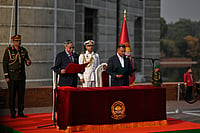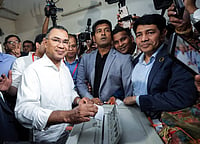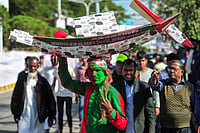On August 5, political activists Vernon Gonsalves and Arun Ferreira walked out on bail after spending nearly five years in jail. However, 10 more activists and scholars linked to the Bhima-Koregaon, or Elgar Parishad, case are still behind bars. The case has gained global attention for the alleged partisan role of the police.
On January 2, 2018, a day after communal clashes in Maharashtra’s Bhima-Koregaon claimed one life, left several injured and properties destroyed, Dalit political activist Anita Sawale lodged a police complaint naming Hindutva organisers Sambhaji Bhide and Milind Ekbote for leading a Hindutva mob and inciting them to attack a gathering of anti-caste activists.
Bhide, who has also been seen in the same frame with Prime Minister Narendra Modi, was never arrested. Ekbote was arrested in March 2018, after the Supreme Court criticised the police for failing to arrest him. He, nevertheless, obtained bail the next month.
In contrast, another police complaint lodged on January 8 by Tushar Damgude, who was known to be a close associate of Bhide, alleging the involvement of the members of the banned CPI (Maoist) behind the anti-caste gathering, became the main tool in the hands of the police in conducting the investigation.
They arrested not only the activists named in the complaint but also eminent civil society personalities who were not named. They were arrested under various sections of the Indian Penal Code as well as the provisions of the stringent anti-terror law, the Unlawful Activities (Prevention) Act.
Eventually, the Pune police came up with the claim that these civil society activists, including poet Varavara Rao, lawyer Sudha Bharadwaj, journalist Gautam Navlakha, scholar Anand Teltumbde, Jesuit ‘Father’ Stan Swamy, professors Shoma Sen and Hany Babu, were involved in a plot to assassinate Prime Minister Narendra Modi. When the BJP government in Maharashtra fell, the National Investigation Agency (NIA) under the Union government promptly took over the case.
Activists alleged a State-sponsored conspiracy—that political-ideological opponents were framed by using the Pegasus spyware and ‘evidence’ was planted on their digital devices.
The chain of events needs to be seen in the context of the larger ideological conflict that Bhima-Koregaon represents. The anti-caste gathering was to celebrate the bicentenary of the English East India Company’s Dalit-based army’s victory at Bhima-Koregaon over the Brahminical Peshwa rulers of Maharashtra in 1818. This defeat led to the fall of the Maratha Empire, which the Hindu nationalists eulogise.
If one goes by the works of BR Ambedkar, who led the commemoration ceremony at Bhima-Koregaon in 1928, the history of the time cannot be seen through the lens of the colonial-national binary. For, as Ambedkar pointed out—and as could be traced in the works of Jyotiba Phule—the Peshwa rulers were one of the worst enemies of the untouchables. Besides, Brahmins turned out to be one of the most loyal collaborators of British rule in Maharashtra thereafter.
An 1855 essay by Mukta Salve, a 14-year-old Dalit student of a school run by Jyotiba and Savitribai Phule, can give us a hint of what the rule of Peshwa Baji Rao II meant for the Mahars of Maharashtra.
She wrote, “Did they (Brahmins) not consider us even lower than donkeys during the rule of Baji Rao Peshwa? ... Under Baji Rao’s rule, if any Mang or Mahar happened to pass in front of a gymnasium, they would cut his head off… when any Mang or Mahar would somehow learn to read or write, and if Baji Rao came to know about this, he would say, education of a Mang or Mahar amounts to taking away a Brahmin’s job.”
If such emotions have been the driving force behind celebrating the fall of the Peshwas, the Rashtriya Swayamsevak Sangh (RSS), the ideological-organisational parent of the BJP, celebrates the foundation of the Maratha empire on ‘Shivaji’s Coronation Day’ through hundreds of events organised across the country every year.
It is this direct conflict between Hindutva and the Ambedkarites’ views of the past and present that turned Bhima-Koregaon into what it now is.
(This appeared in the print as 'A Battle Over Past And Present')


























